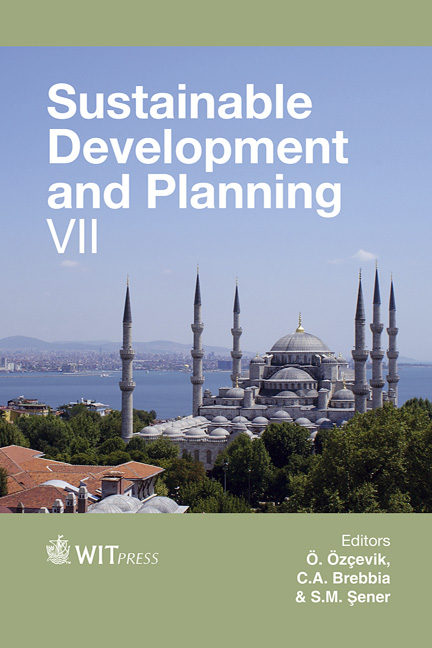A Framework For Assessing The Procedural Justice In Integrated Resource Planning Processes
Price
Free (open access)
Transaction
Volume
193
Pages
12
Page Range
119 - 130
Published
2015
Size
441 kb
Paper DOI
10.2495/SDP150101
Copyright
WIT Press
Author(s)
P. Emami, W. Xu, H. Bjornlund, T. Johnston
Abstract
Globally, there is growing competition for a wide range of natural resources. The need to manage and allocate natural resources fairly has been identified as an important policy goal in many discussions. These deliberations have in turn brought questions of social justice into sharp focus. To better understand justice issues in resource allocation and planning, general theories of social justice are reviewed from various perspectives. Social justice focuses on creating fair and equal conditions in which individuals matter, and their rights are recognized and protected when decisions are made. Social justice is discussed in the literature with respect to three main concepts: equity, distributive justice, and procedural justice. Our review of this literature reveals that attending to procedural justice can lead to a process ensuring a fair allocation of resources, adding transparency, and improving public acceptance. However, the procedural justice literature lacks a comprehensive model to assess integrated natural resource planning processes vis-à-vis procedural justice. This paper addresses this gap. It describes a model of procedural justice which we propose is well-suited for application in a range of circumstances and across jurisdictions. To generate the model, several theories of procedural justice are reviewed, leading to the identification of five fundamental principles against which processes for making resource management and allocation decisions can be assessed. To ensure fairness, planning processes should have (i) an unbiased framework; (ii) an informative procedure; (iii) a process that secures legitimate representation; (iv) an effective public consultation process and (v) the ability to resolve conflicts.
Keywords
Integrated Resource Management, procedural justice, regional planning, Alberta, Canada





